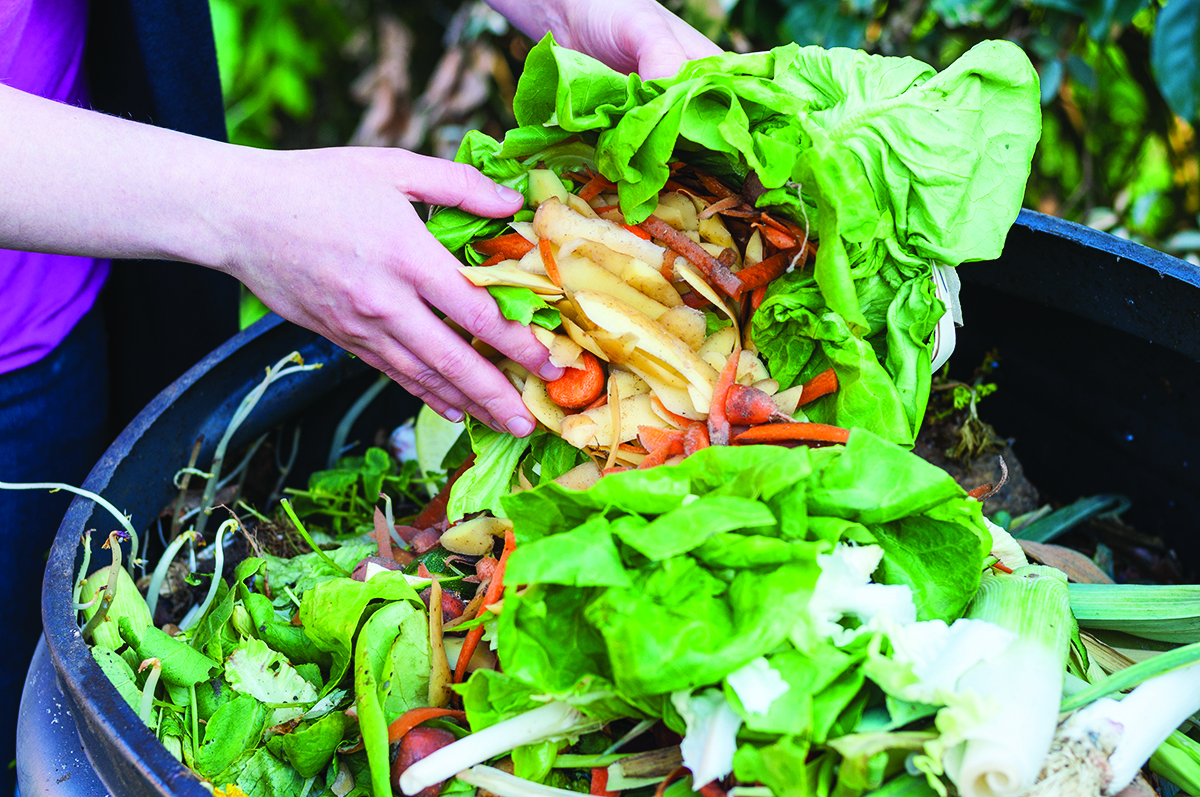
By Michael Bennett
A significant portion of waste at the George Town Landfill site is yard waste.
Clippings and cuttings account for between 15% and 20% of the waste arriving at the George Town Landfill, according to the Department of Environmental Health. A portion of this material may be shredded and used as landfill cover, mulched and given to the public or used in the DEH’s landfill operations.
Once the ReGen facility has opened, it will accept food and yard waste for commercial composting. We need to act now, however, to reduce the amount of waste being sent to the landfill. You can be a part of the change by composting your yard waste at home. Generally, Cayman’s soil is quite poor, so producing your own nutrient-rich plant food by composting at home will have your garden flourishing in addition to reducing your carbon footprint.
Composting is a natural process that occurs when leaves pile up beneath the trees and begin to decay. As they break down, the leaves turn into a dark, crumbly organic matter. This matter goes back into the soil and the nutrients are reclaimed by the roots of the tree. You can replicate this process at home.
How to compost
To compost, all you need is food, air and water. The hard work of composting is performed by microbes. Microbes grow as organic matter breaks down. They thrive on the food that you give them – the food being yard waste.
Composting microbes are aerobic and need air to thrive. Composting piles should be turned frequently to give the microbes the oxygen they need. If the pile isn’t broken up, anaerobic microbes will take over, causing slow decomposition. This can make your compost smell unpleasant. Compost piles should be turned with a spade or garden fork, bringing the bottom to the top and re-piling neatly.
Your compost pile should be as moist as a wrung-out sponge for the microbes to thrive. Dry items such as leaves or straw need to be moistened with water as you add them to the pile. For efficient composting, keep your compost pile no larger than one cubic metre.
Green waste contains more moisture – leaves, grass/lawn clippings, some kitchen waste (fruit and vegetable peels/rinds, coffee grounds and eggshells).
Composting offers a great solution for lots of organic waste, but meat, dairy and animal excrement should never be added to your piles.
While it might seem daunting at first, growing nutrient-rich compost is great for your garden, and for reducing Cayman’s waste.
This article will also be featured in the September/October print edition of Camana Bay Times.
